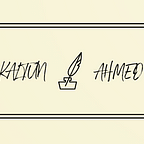Somaliland. The first cashless society.
On the horn of Africa, a revolution is happening. Somalia is not known for being a pioneer for much, but it might just become the world’s first cashless society. More than 50% of the population uses a form of digital money transfer daily. This small unrecognised country has entirely skipped the need for credit cards. With transactions being instant, cash is quickly disappearing from the market. Users can pay for goods, and services and transfer money between each other quickly and efficiently.
With the boom in technology and the introduction of cryptocurrencies. It seems as though we’re all heading towards a cashless society. However, the motivations are different in Somaliland. With the lack of a formal banking infrastructure due to the civil war in the ’90s, the national currency has little value. This has resulted in the locals turning to e-payment rather than carrying large amounts of cash for everyday use.
The payment system has had a massive impact on the country. All one needs to do is type in a few numbers followed by a code unique to each person or business, and within seconds money has changed hands. The beauty of the services is that it requires no internet connection allowing even the most basic of phones to be used. It has simplified the lives of many, but most importantly, it has made it possible for even the poorest of citizens to use the service. With the ability of quick and simple transfer of money, relatives living in more urban parts of the country can quickly send their more rural relatives money instantly.
However, with only two companies providing the services in Somaliland (Zaad and E-Dahab) there is a fear of corruption. Unlike other mobile money transfer services in other countries, these two companies deal solely with the US dollar. Aiding the reliance on the dollar, which could be causing the current inflation on the Somaliland shilling. Coupled with the lack of regulation, and oversight by the government. There is a concern about the amount of influence these two companies have on the already tenuous economy.
With the popularity of cryptocurrencies and blockchain technology, one can’t help but wonder how this technology could be implemented in the future. Would the current system work better if it was coupled with blockchain technology? and if so, could it help address the issues of corruption in the market?
